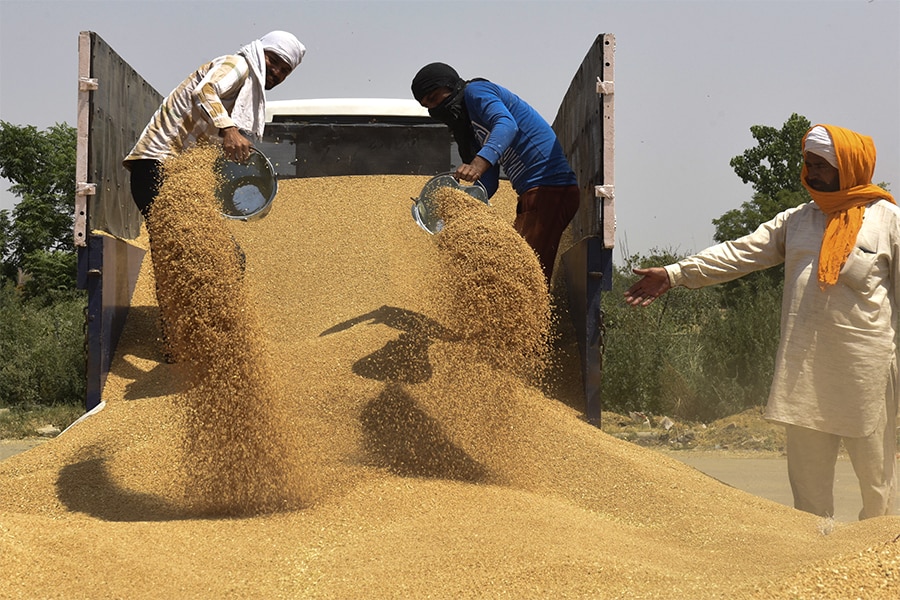
India's wheat exports ban adding to global food insecurity
India, the world's second-largest wheat producer, has banned exports of the grain with some exceptions, a move that could compound a worldwide shortfall worsened by the war in Ukraine and exacerbate an already dire forecast for hunger across the globe
 India that has about 10% of the world’s grain reserves has banned exports with some exceptions. Image: Narinder NANU/ AFP
India that has about 10% of the world’s grain reserves has banned exports with some exceptions. Image: Narinder NANU/ AFP
India, the world’s second-largest wheat producer, has banned exports of the grain with some exceptions, a move that could compound a worldwide shortfall worsened by the war in Ukraine and exacerbate an already dire forecast for hunger across the globe.
The war has interrupted wheat production in Ukraine and Russia, which are major suppliers. Fighting and blockades in the Black Sea have disrupted transport of the grain.
And poor harvests in China, along with a heat wave in India and drought in other countries, have further snarled global supply.
India has about 10% of the world’s grain reserves, according to data from the U.S. Department of Agriculture, a large surplus resulting from its heavy subsidizing of its farmers. It has been seen for months as a country that could help make up for global supply shortages.
The wheat-export ban, announced in a Commerce Ministry notice dated Friday, appeared to be an about-face from earlier statements from Prime Minister Narendra Modi. The Indian leader told President Joe Biden in April that the country was ready to supply the world from its reserves. He also urged domestic wheat producers to seize the opportunity, saying that Indian officials and financial institutions should support exporters.
But agricultural experts said an ongoing heat wave and rising temperatures could affect the harvest this year, which could be a factor in why the government changed course and imposed a ban on the exports.
©2019 New York Times News Service




